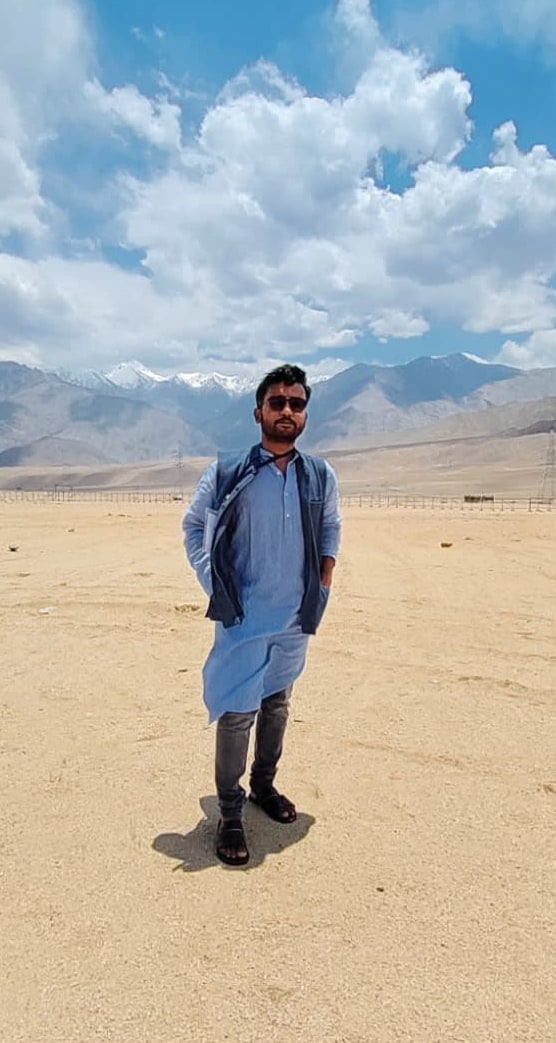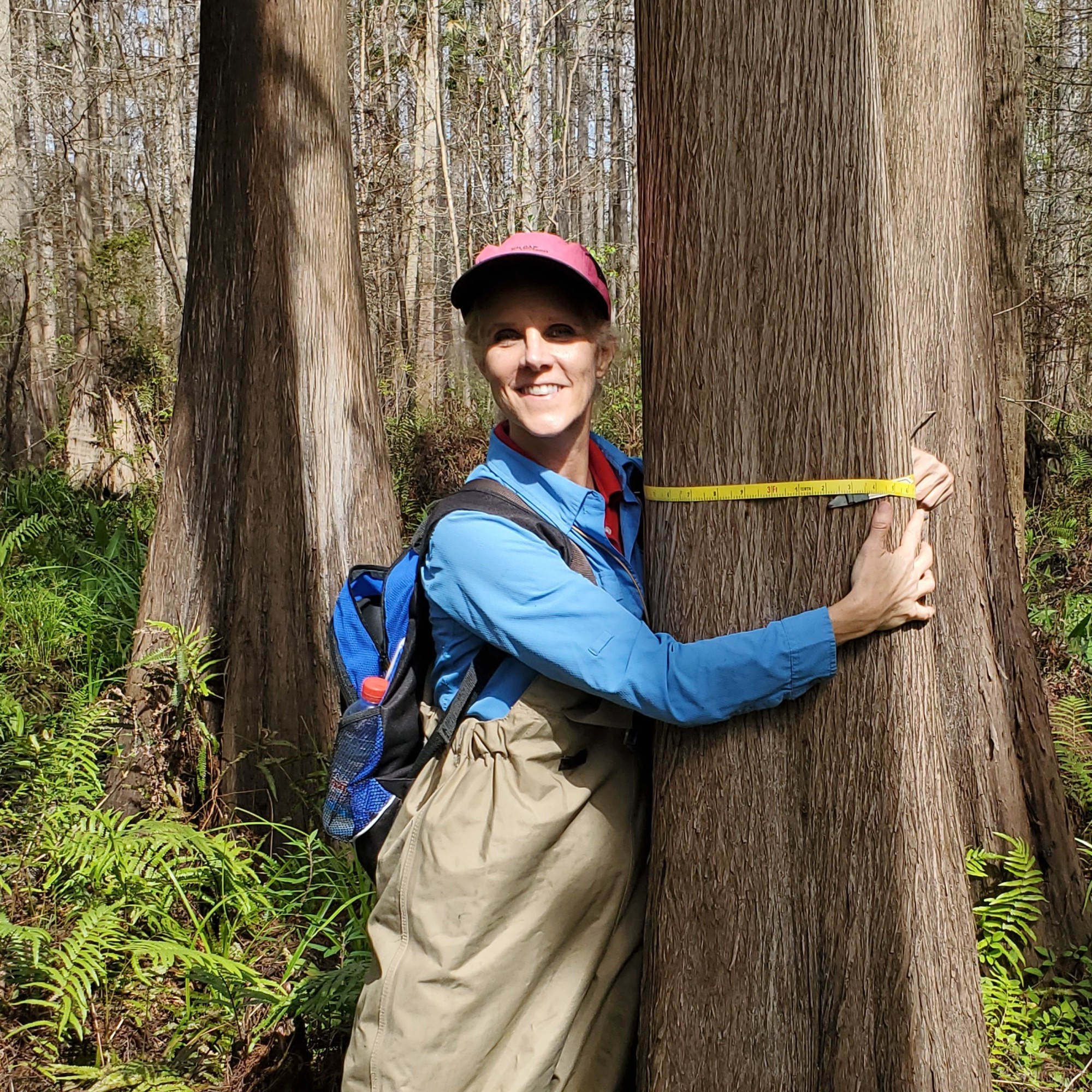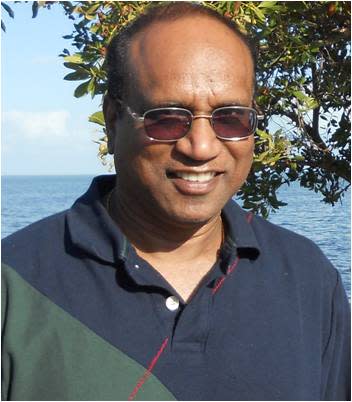Asia Chapter
Tiasa Adhya

Frank Paolo Jay Albarico
Frank Paolo Jay B. Albarico is a Research Scientist at the Sustainable Environment Center of the National Kaohsiung University of Science and Technology, Taiwan. He is formerly a faculty of the College of Fisheries and Allied Sciences, Northern Negros State College of Science and Technology, Philippines, where he taught various fisheries and marine science-related subjects such as in Fisheries Management, Fisheries Laws, Ichthyology, and Microbiology. He is also affiliated with the Department of Marine Environmental Engineering of the National Kaohsiung University of Science and Technology, Taiwan . Dr. Albarico has almost a decade of research and wetlands management experience. He has been working in mangrove diversity, ecology, and management. He is among the few scientists to study the taxonomy and ecology of mud lobsters (a mangrove resident) in the Philippines. Recently, he has been involved in estuarine and coastal pollution and assessments and plankton biogeochemistry research in southern Taiwan. His research involves environmental and anthropogenic impacts on plankton and the trophic transfer of persistent pollutants at higher trophic levels. His research integrates the relationship between environmental, ecological processes, and community dynamics on the fate and transfer of contaminants.
Wen-Lian Chang
Md Chowdhury
Gillian Davies
Gillian Davies is a Senior Ecologist & Natural Climate Solutions Specialist at BSC Group, Inc., where her work focuses on climate change and wetlands, working with local communities to develop Nature-based Solutions, particularly wetland, forest, and soil conservation and restoration, and providing wetland peer reviews for Conservation Commissions. She is a Visiting Scholar at Tufts University Global Development and Environment Institute, is Immediate Past President of the Society of Wetland Scientists Professional Certification Program, was the 2016-2017 SWS President, is a co-lead for the SWS Climate Change and Wetlands Initiative and chairs the SWS Rights of Wetlands Section and the WOTUS ad hoc sub-committee. She serves on the International Association for Ecology (INTECOL) Wetlands Working Group. Gillian served on the Massachusetts Healthy Soils Action Plan working group. Gillian has a Master of Environmental Studies degree with a concentration in ecosystem ecology from the Yale School of the Environment, and a bachelor’s degree from Williams College. She is a certified Professional Wetland Scientist, a Registered Soil Scientist, and has received the SWS President’s Service and SWS 40th Anniversary Awards. In her spare time, she and her husband enjoy hiking, mountain biking and skiing.

Sayanta Ghosh
https://www.teriin.org/user/15680
Mr. Sayanta Ghosh has been working in the field of Geospatial Technology Applications for the last seven years in different reputed national institutes and CSIR labs in India.
Presenlty, he is working as the Area Convenor of Centre for Geospatial Technology Application (CGTA) under the Land Resources Division, The Energy and Resources Institute (TERI), New Delhi, India. Major activities of his present engagement are Forest Biomass Assessment using Multisource Earth Observation Data. He is basically handling the RS-GIS activities of various projects of the Land Resources division such as modelling spatial carbon stock and carbon sequestration potential of different LULC classes, Carbon Stock Assessment, Soil Organic Carbon Mapping, Vulnerability Assessment of forest & biodiversity, etc.
He has experience in multiscale weather and climate modeling, specifically extreme weather modeling for high altitude areas. He has adequate knowledge in the applications of Remote Sensing and GIS in Agriculture and Crop Monitoring, Environmental Impact Assessment, Forestry and Ecology, Water Resources, Integrated Disaster Modeling over GIS platform. Mr. Sayanta Ghosh has presented his research findings at various international conferences in different countries including India, Indonesia, Malaysia, Vietnam, Turkey, Germany, Austria, U.S.A., Canada, and Nepal. As of now, he has more than 25 publications in his credit in various reputed scientific journals and international conference proceedings. He has been a life member of Indian Society of Remote Sensing (ISRS), Indian Meteorological Society (IMS), Indian Society of Geomatics (ISG), Association for Computing Machinery (ACM) and Indian Association of Hydrologists (IAH). Also, he has been a regular member of the International Society for Photogrammetry and Remote Sensing (ISPRS), European Geosciences Union (EGU) and Indian Regional Association for Landscape Ecology (IRALE). He has received many awards including INSPIRE scholarship from the Department of Science and Technology, Govt. of India and Best Oral Presentation award in the prestigious “International Conference on Technological Interventions for Sustainability” (CHEM-CONFLUX22).
Ali H. Elyasi
Abdul Hadi
Zeena Jayan
Rajiv Kangabam

Manish Kumar
Manish Kumar holds a Ph.D. in Environmental Science from the Central University of Rajasthan, with specialisation in hydro-biogeochemistry and remote sensing. His doctoral research explored the biogeochemical evolution of playa lakes in arid and semi-arid regions of Rajasthan using integrated geochemical modelling and Earth observation tools.
Currently a Research Fellow at the University of Delhi, he is involved in a SERB-funded project focused on the transformation of reactive nitrogen in semi-arid aquatic systems. He has contributed to several international projects on climate change, water-energy-food nexus, and sustainable urban water management in collaboration with institutions like UNU and IGES-Japan.
His expertise spans geospatial analysis (ArcGIS, QGIS, Google Earth Engine), remote sensing (ENVI, ERDAS), hydrological and geochemical modelling (ModFlow, SWAT, PHREEQC), and water quality assessment techniques. He has co-authored publications in Science of The Total Environment, Climate Dynamics, and CLEAN–Soil, Air, Water.
Dr. Kumar’s research is dedicated to advancing sustainable water resource management and informing policy through interdisciplinary science.
Ritesh Kumar
Dr Ritesh Kumar is the principal institutional representative of Wetlands International South Asia. Wetlands International South Asia is a part of the Wetlands International network, a global organisation dedicated to the conservation and wise use of wetlands.
Dr Kumar advises the Ministry of Environment, Forest and Climate Change and several state governments on policy and management aspects of wetlands. In his over 25 years of work, he has helped draft the national regulatory framework of wetlands, technical guidelines on wetlands wise use, management planning, management effectiveness evaluation, climate risk assessment and others. He has also led integrated management planning for several South Asian wetlands and coordinated multidisciplinary projects on wetlands assessment, ecosystem services evaluation, water management, sustainable livelihoods, disaster risk reduction and climate change adaptation.
Dr Kumar is also a nominated member of the Scientific and Technical Review Panel of the Ramsar Convention and a coordinating lead author at the UNEP – Global Peatlands Initiate, Inter-governmental Science Policy Platform on Biodiversity and Ecosystem Services (IPBES) for values assessment, nexus assessment and Asia Pacific Regional Assessment. To bring to the fore research South Asian wetlands, he has authored several peer-reviewed articles on wetlands conservation and management topics. He also serves on the Editorial Board of international journals Marine and Freshwater Research, Wetland Ecology and Management, and PLoS Water.

Romina Llanos


Angeline Mano Matheswaran

Amrit Mishra
Ruba Munir
Kimberli Ponzio
 Kimberli Ponzio has over 36 years of experience working in Florida wetlands as an Environmental Scientist for two water management districts in the state of Florida, USA. Kim has been certified as a Professional Wetland Scientist for 25+ years, finding it important to ensure stakeholders from public, academic, and consultancy sectors that she has the education, work history, and skill-set necessary to deliver professional wetland services, and that she is committed to upholding a high standard of ethical behavior. Kim has been involved in leadership with the Society of Wetland Scientists since 2007, was SWS President in 2015, President of the SWS Professional Certification Program (SWSPCP) in 2020, and currently serves as Co-Chair of the SWSPCP Diversity, Equity, and Inclusion Committee. Kim is actively involved in helping to globalize the SWSPCP by making the Program accessible to qualified individuals, regardless of geography or financial standing. Kim’s approach has always been one of a collaborative spirit, which she believes is one of the most powerful mechanisms to further the cause of conserving, restoring, and protecting wetlands.
Kimberli Ponzio has over 36 years of experience working in Florida wetlands as an Environmental Scientist for two water management districts in the state of Florida, USA. Kim has been certified as a Professional Wetland Scientist for 25+ years, finding it important to ensure stakeholders from public, academic, and consultancy sectors that she has the education, work history, and skill-set necessary to deliver professional wetland services, and that she is committed to upholding a high standard of ethical behavior. Kim has been involved in leadership with the Society of Wetland Scientists since 2007, was SWS President in 2015, President of the SWS Professional Certification Program (SWSPCP) in 2020, and currently serves as Co-Chair of the SWSPCP Diversity, Equity, and Inclusion Committee. Kim is actively involved in helping to globalize the SWSPCP by making the Program accessible to qualified individuals, regardless of geography or financial standing. Kim’s approach has always been one of a collaborative spirit, which she believes is one of the most powerful mechanisms to further the cause of conserving, restoring, and protecting wetlands.
Kurnia Rachmawati
Anu Rai
Priya Ranganathan
I am a doctoral student at ATREE, Bengaluru (affiliated with Manipal Academy for Higher Education) and my research focuses on the ecohydrology and ecosystem services of Myristica swamps, a type of freshwater swamp forest found in select wet evergreen patches of the Western Ghats of India. My work involves studying the seasonal hydrology of these wetlands, the degradation and fragmentation of these swamps and the causes behind these changes in the larger landscape, as well as studies to understand the ecology of swamp trees and the potential for the restoration of degraded swamps with involvement of local stakeholders.
Prior to beginning my doctoral research, I worked as a consultant and a research associate on various projects on river ecology, hydrology modelling (GIS, HEC-RAS, Google Earth Engine), species distribution modelling, wildlife ecology in the Western Ghats, human-wildlife conflict, conservation education, and corridor ecology. My work experience is primarily in India, although I completed my B.Sc. in Environmental Geology and Biology from the University of Pittsburgh (Pittsburgh, USA) and my M.E.M. Environmental Management (Ecosystem Science and Conservation) from Duke University's Nicholas School of the Environment (Durham, USA).
Apart from research, I am pursuing a B.A. in Bharatanatyam, an Indian classical dance form and am part of the IUCN's pioneering certificate course on Wetlands Ecology, Biodiversity and Conservation. I am an active writing mentor with Scholastic-India's Young Writers' Academy, where I mentor school students in storytelling and writing, and have conducted multiple workshops on popular science writing, grant writing, and other skills for college students and professionals in my field.

Jay Sah
Dr. Sah is a Research Professor, and his research focuses on ecosystem processes and their management implications in the seasonal wetlands in Everglades, coastal wetlands of the Southeast Saline Everglades, and the tropical and sub-tropical upland forests of the Miami Rock Ridge and adjacent islands in South Florida.
Dr. Sah’s expertise is in studying vegetation-environment relationships and effects of natural and anthropogenic disturbances on pattern and processes in various types of plant communities, including upland forests and floodplains, wet prairies, marshes and other seasonal wetlands.
His research approach includes the use of both univariate and multivariate statistical tools to analyze and interpret relationships among vegetation and environmental variables in large data sets, spatial integration of the analytical results via extensive GIS databases, and system dynamics modeling. He is also involved in inter-disciplinary research on socio-economic issues, conservation, and natural resource management in Nepal.
Joseph Schubauer-Berigan Ph.D.


Ashikur Rahman Shome
Ashikur Rahman Shome is an aspiring wildlife ecologist, working in the field of wildlife research and biodiversity conservation in Bangladesh. He is currently working in wetland wildlife conservation, urban wildlife conservation, and conservation of wildlife in the Ganges floodplain of Bangladesh. As a wildlife ecologist, he works in the Center for Environmental and Geographic Information Services (CEGIS) Bangladesh.

Abu Tareqe Md Tamim
